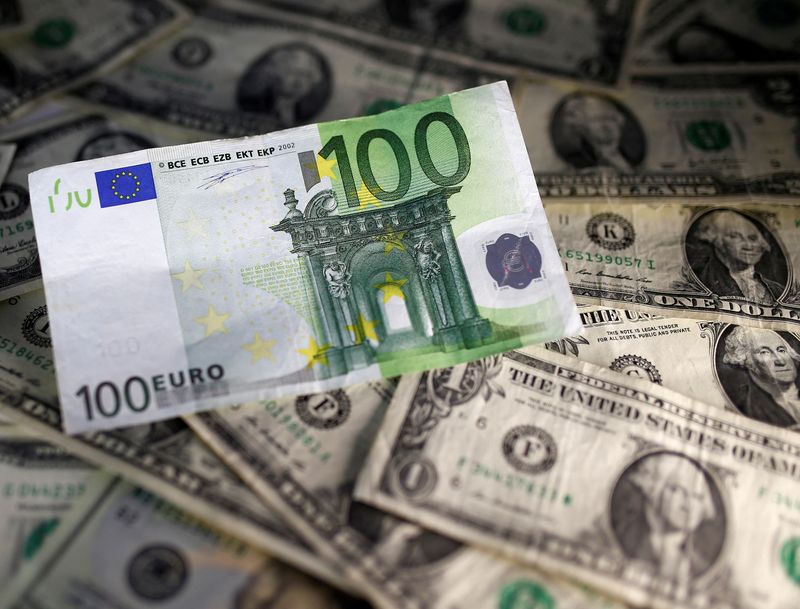By Medha Singh and Tom Westbrook
(Reuters) -The euro fell against the dollar on Thursday as traders reined in bets on further interest rate cuts by the European Central Bank, while broader currency moves remained muted in holiday-thinned US trading.
The Japanese yen fell to 151.58 per dollar, but with a 2.1% gain this week the currency reversed losses since the US election and was on track for its best weekly performance in three months. Markets see a 53% chance that the Bank of Japan will raise rates next month.
Broad trading was weak as U.S. stock and bond markets were closed for Thanksgiving.
The index rose to 106.21 after falling to 105.85, a two-week low, in the previous session.
“It will likely be a gloomy few days to round out the week, but I expect the dollar to recover as December rolls around,” said Michael Brown, senior research strategist at Pepperstone, adding that Wednesday’s move, which dollar again below 106, it seemed. a bit “loose from the fundamentals.”
“We’re still talking about American exceptionalism, an incredibly long list of problems in the eurozone, and now this morning we have French budget concerns.”
The euro fell 0.2% to $1.054625 after its sharp rise on Wednesday following hawkish comments from European Central Bank board member Isabel Schnabel.
The comments prompted investors to withdraw more aggressive interest rate cut expectations and buy the common currency, which is on track for its worst month in two and a half years.
German annual inflation remained flat in November, despite expectations of a second consecutive increase. It comes ahead of Friday’s eurozone inflation data, which could offer hints about the ECB’s next steps.
Money markets now see only a 13% chance of a bigger 50 basis point rate cut by the ECB, while last Friday was a flop. A move of 25 bp is fully priced in.
“Today’s eurozone macro data releases should encourage ECB hawks to object to a 50 basis point rate cut in December,” said Carsten Brzeski, global head of macro at ING.
Eyes are also on France’s fragile coalition government, which is struggling to pass a budget.
HOLIDAY DICK
Pound sterling was little changed at $1.2666 against the dollar, while the Swedish krona strengthened against the dollar and euro after data showed sentiment among businesses and consumers in Sweden picked up in November.
The Australian dollar recovered from early weakness to gain slightly to $0.6501. Michele Bullock, governor of the Reserve Bank of Australia, said core inflation was too high to allow for short-term rate cuts.
While the currency majors were in a bit of a lull, there was some action in emerging markets.
The Russian ruble rose to just over 110 per dollar after losing almost a third of its value since August, when Russia’s central bank said it would halt currency purchases until the end of the year to support the currency .

The Brazilian real hit a record low on concerns about the impact of tax cuts on a tight budget.
South Korea’s gains were slightly weaker after the central bank cut interest rates at a second straight meeting – an outcome that only four of 38 economists polled by Reuters had anticipated.


